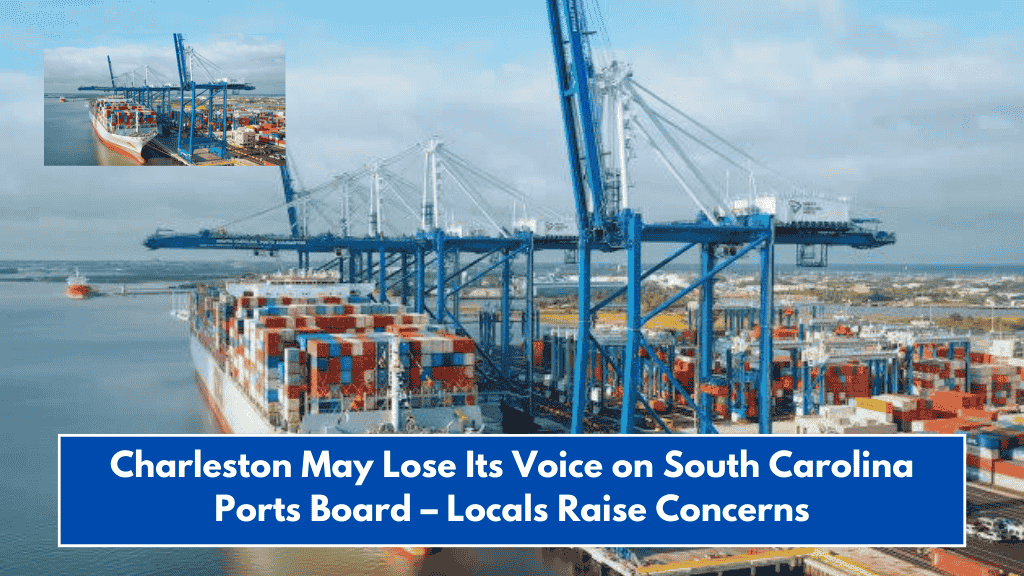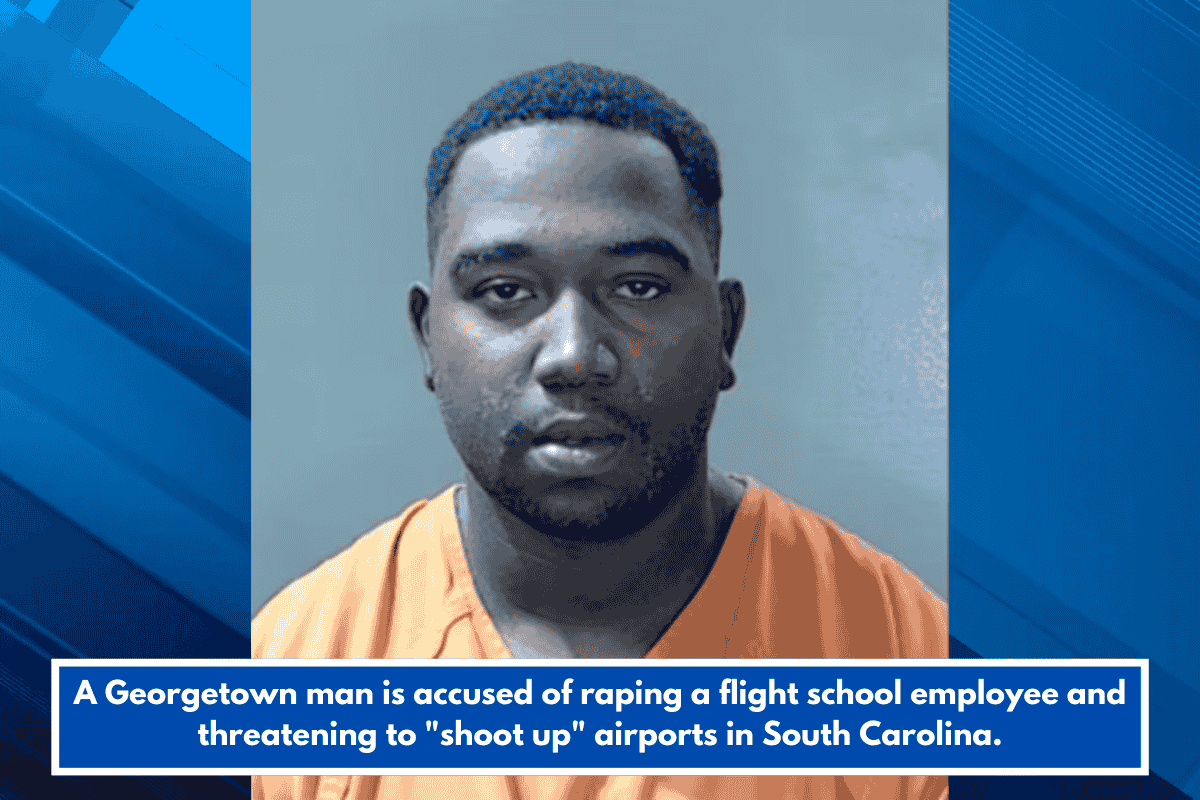Charleston, a major port city in South Carolina, may soon lose its local voice on the state’s Ports Authority Board. This is raising strong concerns among local lawmakers and citizens, as no one from Charleston is currently among the new appointments proposed for the board.
No Charleston Member on Ports Board for the First Time in Decades
For the first time in many years, not a single member from Charleston may sit on the South Carolina Ports Authority’s nine-member board. This board manages operations worth nearly $87 billion each year and plays a big role in the state’s economy.
The new list of board members was shared during a state Senate Transportation Committee hearing on April 30. It includes four new members and three returning ones. All were appointed by South Carolina Governor Henry McMaster.
Lawmakers Call This a Big Miss
Many lawmakers from both political parties, especially those representing Charleston and surrounding areas, are not happy. State Senator Ed Sutton from Charleston County called the situation “unacceptable.” He believes that having someone from Charleston on the board is important because this is where most port-related activities happen.
He added, “If you don’t live here, it’s harder to attend meetings or speak directly with partners who deal with the port every day.”
Port of Charleston Plays a Key Role in State’s Economy
South Carolina Ports runs several important port locations, including four maritime terminals in Charleston and two inland ports in Greer and Dillon. According to a 2023 economic report by Dr. Joseph Von Nessen from the University of South Carolina, port activities in Charleston alone generate $11 billion every year and support around 32,000 jobs.
The port helps businesses across the state, especially in areas like warehousing, manufacturing, and distribution. While many jobs connected to the port exist across the state, most direct port activities still happen in Charleston.
Local Impact Brings Local Problems Too
Senator Sutton pointed out that while all counties in South Carolina benefit from the port, Charleston bears the direct effects. These include heavy traffic and pollution caused by port activities. He believes that without a local member on the board, these problems could get worse.
Should the Appointment System Change?
Sutton is even thinking about new legislation that might allow local mayors — from cities like Charleston, Mount Pleasant, and North Charleston — to have a say in board appointments. He feels that local leaders understand the unique needs and challenges better than outsiders.
Meanwhile, a spokesperson for Governor McMaster defended the appointments, saying the board represents the entire state and works for all citizens. One of the new appointees, J. Barnwell Fishbourne from Walterboro, even offered to represent Charleston’s interests during the Senate hearing.
The final approval for the appointments is expected soon in the state Senate.
Who Are the Appointed Members?
Here are the names and hometowns of the proposed board members:
James Burns – Chapin
Daniel Ellzey – Columbia
J. Barnwell Fishbourne – Walterboro
Robert Rain – Spartanburg
Mark W. Buyck – Florence
Pamela Lackey – Columbia
William Stern – Columbia
William Coates – Greenville
Felecia Howard – Columbia
Charleston has been the heart of South Carolina’s port operations for decades, helping drive economic growth and job creation. While it’s true that the ports benefit the entire state, the daily impact — good and bad — is felt most in Charleston. Losing a local voice on the Ports Authority Board may disconnect the board from those who are directly affected by its decisions. Lawmakers like Senator Sutton are calling for fair representation to make sure local concerns are not ignored. This issue might lead to changes in how board members are appointed in the future, giving local leaders more power to protect their city’s interests.









